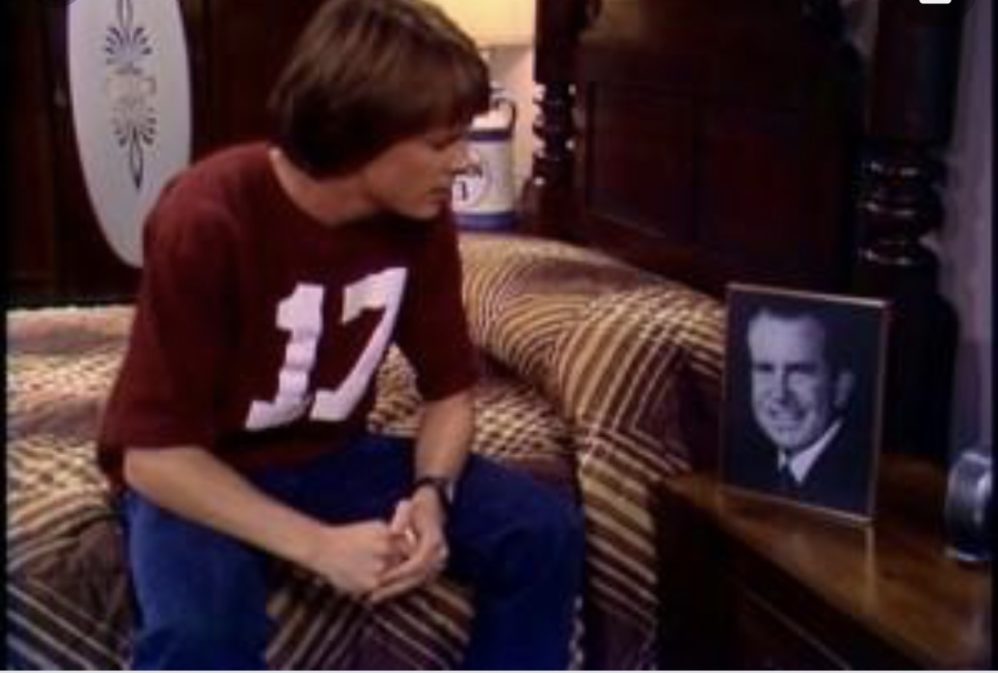How Alex P. Keaton Predicted The New Conservative Movement
Alex P. Keaton, the countercultural conservative from the 1980s sitcom 'Family Ties,' tells us a lot about the new conservative movement
By David Marcus
For people of a certain advanced age, the first openly Republican or conservative fictional character they can remember is Alex P. Keaton from the NBC sitcom “Family Ties.” The role launched Michael J. Fox’s career, but it did something else, too: in many ways, Alex Keaton predicted the conservative movement that we see emerging today. Energetic and aggressive, Keaton was an unapologetic conservative character at a time conservatism was in many ways an apologetic underdog.
It is important to note that Alex P. Keaton was born in 1965, the very first year of Generation X. The comic tension he provided was his rejection of the 1960s hippie ethos of his progressive parents. He is arguably the first manifestation of something that is now a staple of our society, the countercultural conservative. Conservatism as counter culture has reached an apex in the age of Trump. But its seeds can be seen in this old NBC sitcom. Keaton might as well have said, “Okay, Boomer.”
When the show launched in 1982, and indeed for the following three decades, most conservatives in the media were very unlike Alex P. Keaton. The Platonic ideal of the late 20th century conservative pundit was a George Will, or a William F. Buckley. Both operated with a kind of outsider status, Buckley in particular, although still a conservative hero always seemed to be operating from a defensive crouch. He stood athwart history, he looked for the conservative who was most electable. The mantra coming out of the 1960s seemed to be, “We will eventually lose, but we can lose more slowly.”
This was not the way of Alex P. Keaton, the first Gen X conservative. He was joyous and confident in his conservatism, a kind of Reaganite happy warrior. And it is interesting to note that this character was an iconoclast for supporting Reagan, even though in the show’s third season Reagan won an absolute landslide of an election against Walter Mondale. Surely there were millions of Alex P. Keatons heading off to college or the workforce, yet in the eyes of Hollywood this type was still a freak.
As it turns out, there were a lot of Alex P. Keatons, and just as the character would be, they are now in their 40s and 50s and for the first time taking institutional power within conservatism. The new energy that the Gen X conservative is bringing has everything to do with being countercultural. In fact, it might fairly be said that Gen X had no culture, only countercultures. The conservative of the past was of the past, always seeming to want to wind the clock back — to the 1950s, back to some American ideal unsullied by the riotous 1960s.
But the conservative contemporaries of the hippie Boomers were in some ways ill-equipped to fight those who had bested them in defining a generation, so it would fall to the children of the flower children to challenge the shibboleths of Woodstock. Every Gen X kid who grew up rolling his eyes at stories of communes and anti-war protests, who has a nostalgic disdain for Crosby, Stills, and Nash, carries in him the essence of the new conservative.
David Marcus is the Federalist's New York Correspondent. Follow him on Twitter, @BlueBoxDave.
- Justin Thyme-Two cents worth of opinion. As a regular watcher of that show, I related to the character of Alex Keaton. It was he that was the intellectual in the family, and the character showing the most stable personality and logical thinking family member.






No comments:
Post a Comment